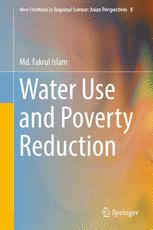

Most ebook files are in PDF format, so you can easily read them using various software such as Foxit Reader or directly on the Google Chrome browser.
Some ebook files are released by publishers in other formats such as .awz, .mobi, .epub, .fb2, etc. You may need to install specific software to read these formats on mobile/PC, such as Calibre.
Please read the tutorial at this link: https://ebookbell.com/faq
We offer FREE conversion to the popular formats you request; however, this may take some time. Therefore, right after payment, please email us, and we will try to provide the service as quickly as possible.
For some exceptional file formats or broken links (if any), please refrain from opening any disputes. Instead, email us first, and we will try to assist within a maximum of 6 hours.
EbookBell Team

4.4
82 reviewsThis book is the outcome of empirical research on the sharing of water of the Teesta River, which flows through India and Bangladesh. The main purpose is to show how regional cooperation between India and Bangladesh regarding sharing of Teesta River water can ensure optimal benefits for people living in the area of the Teesta Basin located in the two countries. The author takes an interdisciplinary approach focusing on the relationship between availability of water and the reduction of poverty in the Teesta Basin as a whole. The book presents findings of a comparative socioeconomic survey on the Dalia and Gazoldoba irrigable areas, with background information on the Teesta River and its origin, spatio-physical nature, geomorphic and hydrological characteristics, irrigation and water delivery system through the Gazoldoba barrage in India and the Dalia barrage in Bangladesh. Citing the principles of transboundary freshwater sharing, this work focuses on different approaches to international water sharing and introduces an optimal approach to dry season water sharing and welfare maximization by developing a bilateral water sharing model. The model is tested through computer simulation, and an alternative water allocation policy is proposed. Water Use and Poverty Reduction is highly recommended to readers who seek an optimum solution to transboundary and bilateral water sharing and poverty reduction issues.